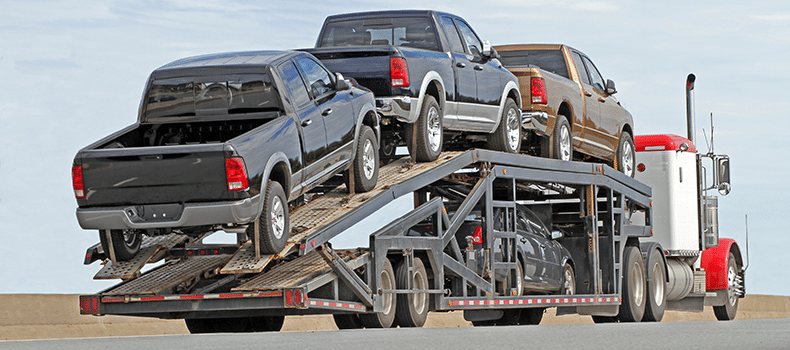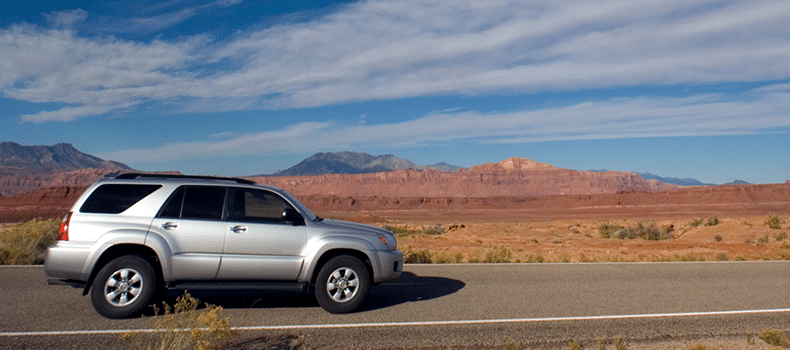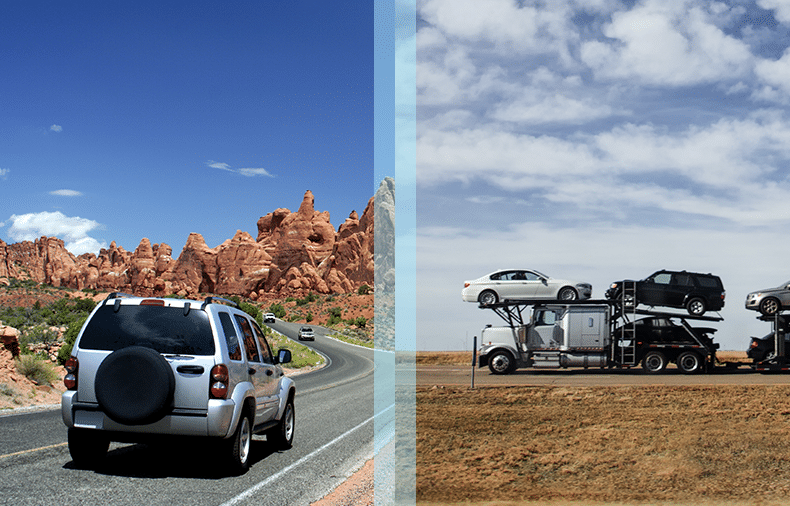Over 41 million Americans moved in 2023, and nearly 8 million of them relocated across state lines. For many, relocating a car adds stress to an already complex process. Driving your vehicle yourself may seem simple, but it comes with costs: time, wear and tear, safety concerns, and lost productivity.
Car relocation services offer a safer, more efficient alternative. The U.S. auto transport market is growing by 4.8 percent annually, making professional shippers an increasingly popular solution, especially for luxury vehicle owners, snowbirds, collectors, and professionals on the move.
If you’re deciding between driving or hiring a transport service, this comprehensive guide will walk you through options, costs, timelines, and tips to help you make the right choice.
TYPES OF CAR RELOCATION SERVICES

The best car relocation option depends on your budget, timeline, and needs. Here’s how the most common service types break down:
Domestic vs International Relocation
- Domestic: Ideal for cross-state moves, like relocating from Texas to California. Open transport averages $550–$1,600 and takes 3 to 10 days, depending on distance. Example: A job relocation from New York to Seattle might cost $1,150 through uShip, which offers upfront pricing and tracking.
- International: Perfect for importing/exporting cars, especially vintage or rare models. These moves involve customs clearance and higher costs, often $2,500 or more. High-end services use sealed containers for protection.
Open vs Enclosed Carriers
- Open Carriers: The most common and cost-effective option ($0.60 to $1.10 per mile). Best for standard cars. For example, a college student moving a Honda Civic from Florida to Michigan could save up to 40 percent compared to enclosed shipping.
- Enclosed Transport: Essential for luxury, antique, or exotic vehicles. Enclosed shipping costs $1.20 to $1.70 per mile, offering protection from weather and road debris. One collector paid $2,200 to ship a 1967 Mustang across states to a national car auction—worth it to preserve the finish.
Terminal-to-Terminal vs Door-to-Door
- Door-to-Door: This is the most convenient choice. A carrier picks up and delivers the vehicle to specified addresses, ideal for military families or time-sensitive relocations.
- Terminal-to-Terminal: Budget-friendly (up to 20% savings) but less convenient. Cars are dropped off and picked up at designated hubs, making it suitable for dealerships or bulk shipping.
HOW CAR RELOCATION WORKS
Relocating a vehicle with a trusted service simplifies the process and avoids the strain of a long-distance drive. Here’s how it typically works:
Step 1: Get a Quote and Book
Start by requesting a quote online or over the phone. Rates are based on distance, transport type (open/enclosed), vehicle size, and pickup/drop-off locations. Reputable companies provide binding quotes inclusive of taxes and insurance. Once booked, a carrier is assigned, and estimated transit time ranges from 1–2 weeks.
Step 2: Prepare and Inspect the Vehicle
Before pickup:
- Wash the car to identify existing dents or scratches.
- Remove all personal items.
- Secure or remove loose parts (e.g., antennas, spoilers).
- Keep the gas tank ¼ full to reduce weight.
A bill of lading is completed during pickup, documenting the vehicle’s condition.
Step 3: Track and Receive Delivery
Track the shipment through online dashboards or customer portals. On delivery:
- Inspect the car.
- Match its condition against the original inspection.
- Finalize payment (if not prepaid).
Example: Sarah used uShip to transport her Toyota Camry from New York to California for $1,150. She avoided three days of driving, hotel stays, and fuel costs, saving over $500 while tracking her vehicle in real time.
COST OF CAR RELOCATION
What Influences Cost?
Several factors affect your total car shipping cost:
- Distance: Longer routes cost more.
- Transport Type: Enclosed is more expensive than open.
- Vehicle Size/Weight: Heavier or larger cars cost more.
- Timing: Expedited shipping or seasonal demand can raise prices.
Average Pricing
| Type of Move | Estimated Cost Range |
|---|---|
| Local (under 500 mi) | $200 – $600 |
| Cross-country | $800 – $2,000+ |
| International | Starts around $1,500 |
Hidden Fees to Watch
- Fuel Surcharges: May increase with gas prices.
- Insurance Add-ons: Basic protection is standard, but high-value cars may need more coverage.
- Storage Fees: Costs if pickup or delivery is delayed.
- Prep Expenses: Minor repairs or detailing before shipping.
Cross-Country Example
| Cost Item | Amount |
|---|---|
| Base Estimate | $1,500 |
| Fuel Surcharge | $150 |
| Insurance | $100 |
| Storage | $200 |
| Total | $1,950 |
HOW TO CHOOSE THE RIGHT PROVIDER
Not all car relocation companies offer the same level of service. Use this checklist to choose a provider with peace of mind:
What to Look For
- Insurance: Confirm coverage for property damage and cargo. Verify if plans include up to $10,000 in property protection during pickup and delivery.
- Reputation: Read reviews on Yelp, Google, and the BBB. Look for consistency in communication, delivery timeliness, and customer support.
- Licensing: Ensure registration with the FMCSA. Check for a valid USDOT number.
- Professionalism: Look for clear communication, timely responses, and transparent policies.
Questions to Ask
- How many vehicles do you ship monthly?
- Do you offer enclosed carrier options?
- What happens in case of delays or damage?
- Can I speak to recent customers?
- Will I receive a detailed written contract?
Red Flags
- Unusually low quotes
- No insurance or vague coverage terms
- High-pressure sales tactics
- Poor or missing licensing info
- Unclear cancellation policies
PREPPING YOUR VEHICLE FOR TRANSPORT
Clean Thoroughly
A clean vehicle makes inspections easier. Wash the exterior and vacuum the interior. Don’t forget hard-to-reach areas like wheel wells and undercarriage. Apply wax to protect the paint during transit.
Check Fluids and Tires
Top off brake, coolant, and washer fluids. Inflate tires to the recommended pressure and inspect for uneven wear or visible damage. Schedule maintenance if needed.
Document the Vehicle
Take dated, high-resolution photos (front, back, sides, and interior) before shipping. Store paperwork (registration, proof of insurance, repair records) in a waterproof folder or a safe location.
WHY CHOOSE A PROFESSIONAL CAR RELOCATION SERVICE?
1. Safety First
Your car is loaded by trained professionals using industry-standard equipment. Most services include cargo insurance, and uShip’s Protection Plan offers even more peace of mind.
2. Save Time and Stress
Skip the long road trip. You won’t lose time off work or burn vacation days just to move a car.
3. Preserve Vehicle Value
Avoid adding mileage or wear. This matters even more for collectors or resale vehicles.
4. Ship Multiple Vehicles
Shipping services allow you to relocate multiple cars in one trip—perfect for multi-car households or seasonal movers.
5. Property Protection
With uShip Property Protection, customers can safeguard homes or business properties against damage during pickup or delivery, up to $10,000 in reimbursement.
WHEN TO DRIVE YOURSELF INSTEAD

Driving may be the right choice if:
- You’re moving locally or regionally.
- You have a flexible schedule.
- You’re transporting personal belongings.
- You enjoy road trips and prefer control over the journey.
- The total savings outweigh the time and effort.
FINAL THOUGHTS
When deciding between car relocation services and self-driving, it all comes down to cost, convenience, and care.
Choose car relocation services if:
- You’re moving long-distance
- Your schedule is tight
- You’re shipping a high-value or multiple vehicles
- You want added protection and less hassle
Opt for self-driving if:
- You enjoy travel
- The distance is manageable
- You need to transport personal items
- You’re on a tight budget
Not sure what works for you? uShip can help. Compare prices, choose a carrier, and add protection—all in one place. Enjoy safe, smart shipping designed around your move.
PEOPLE ALSO ASK
How much does it cost to relocate a car?
Between $500 to $1,400 for most domestic shipments. Cross-country trips may reach $2,000, while international moves start around $1,500.
What’s the safest way to move a car across states?
Hiring an FMCSA-certified car relocation service with full insurance offers the best protection and reliability.
Can I ship a car and personal items together?
Most companies recommend removing personal belongings, but some allow a small amount if disclosed in advance.
Do I need insurance to ship my car?
Yes. Most companies offer basic coverage, but it’s smart to consider additional protection—especially for high-value vehicles.
How long does car shipping take?
Typical domestic moves take 2–10 days. Cross-country shipments range from 7–14 days, depending on route and carrier availability.



